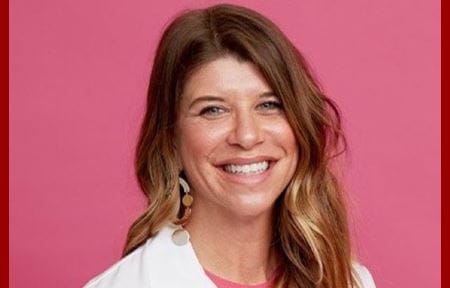For Carla Fisher, MD, MBA, chief of the Division of Breast Surgery at Indiana University School of Medicine, Breast Cancer Awareness Month is not only a time to raise awareness, but also to reaffirm her dedication to helping patients overcome breast cancer. A renowned breast surgeon, educator and researcher, Fisher continues to make a lasting impact on the lives of those faced with the disease.
“I want patients to know that I am there for them and that they have me in their corner,” said Fisher. “I think that's really important because oftentimes patients are understandably very scared and confused. I don't have all the answers, but I have a lot of answers and I'm going to fight for them in whatever way works for them.”
Upon diagnosis, Fisher finds it most important to be transparent with her patients and address their concerns from the get-go.
“When patients meet with me, education is central,” Fisher said. “We make sure they understand their diagnosis, why we’re recommending surgery or other treatments, and they leave with clear information and a direct line to our team.”
The power of a multidisciplinary team
Fisher’s team is extensive. It includes nurse navigators, administrators, medical oncologists, residents and fellows, among others.
“The gratitude patients express post-treatment isn’t just for me — it’s for my entire team,” said Fisher. “It’s for my administrative assistant who made sure everything was scheduled and clear, for my nurse who answered every question with compassion. Hearing that tells me we’ve delivered something truly personal and meaningful.”
Beyond her work with the breast surgery group, Fisher partners with colleagues in the Division of Plastic and Reconstructive Surgery, including Al Hassanein, MD, Rachel Danforth, MD, and Mary Lester, MD, to ensure patients have access to a comprehensive range of treatment options and outcomes.
“Good teamwork leads to great outcomes,” said Fisher. “In our field, that means achieving the best oncologic results first and foremost, and whenever possible, excellent cosmetic outcomes as well. One of the most important things I can do for my patients is offer them options and our collaboration with plastic surgery makes that possible."
Training tomorrow’s breast surgeons
In addition to working alongside a team of talented physicians, Fisher is committed to training the next generation of surgeons through the breast surgical oncology fellowship.
“At its heart, the fellowship teaches surgeons how to perform breast surgery — but honestly, that’s the easy part,” said Fisher. “The technical skills are important, but what we really take pride in is teaching the thought process behind surgery through knowing when not to operate, when to be more aggressive, or when a patient might need chemotherapy first. Breast care, like healthcare in general, is constantly evolving and understanding ongoing research and change is essential for delivering the best care and for our fellows’ long-term success.”
Education and mentorship are also central to Fisher’s work, reflecting her belief that lasting impact comes from preparing those who will carry the field forward.
“I love teaching,” said Fisher. “They learn from us, but we learn so much from them. I think by being a part of a fellowship program, everybody feels like they're part of enhancing breast cancer care across the nation given our fellows are practicing all over the country.”
The future of breast surgery
On top of her role as a breast surgeon and educator, Fisher is engaged in research aimed at advancing the quality of breast surgery care.
“Our research spans from the laboratory to the operating room,” Fisher explained. “We’re studying tumor microenvironments to better understand how cancers develop and respond to treatment, exploring the origins of male breast cancer and examining how we teach complex breast cancer operations to future surgeons. We’ve also partnered with our plastic surgery colleagues to study lymphedema surgery and reconstructive outcomes, and we’re collaborating with institutions across Indiana to evaluate patient outcomes following breast-conserving surgery.”
For Fisher, this work is more than research — it’s changing care, shaping education and redefining what’s possible for patients.
“What’s most rewarding,” Fisher added, “is that our patients are directly involved and benefit from the research being conducted right here in Indianapolis.”
